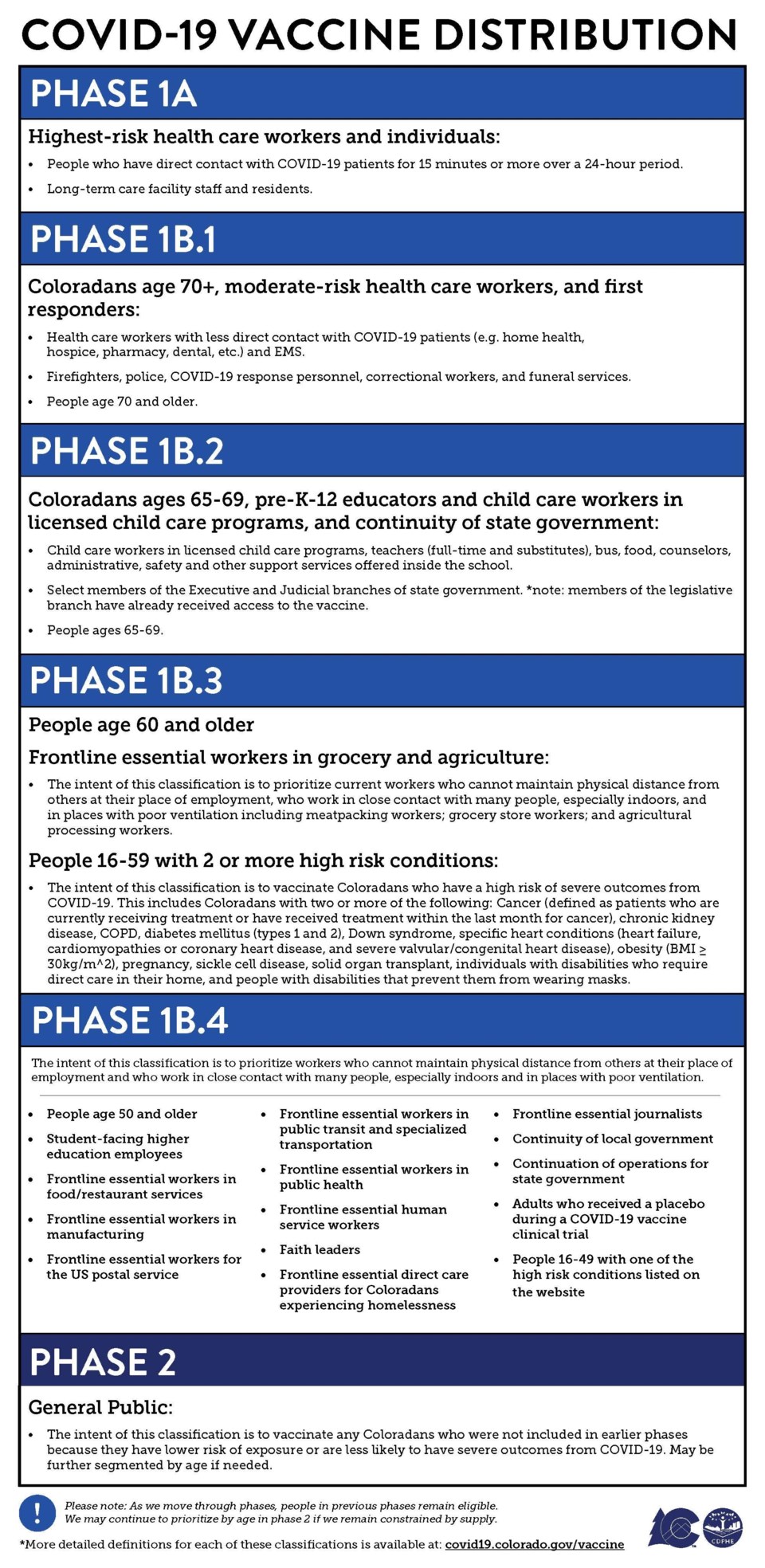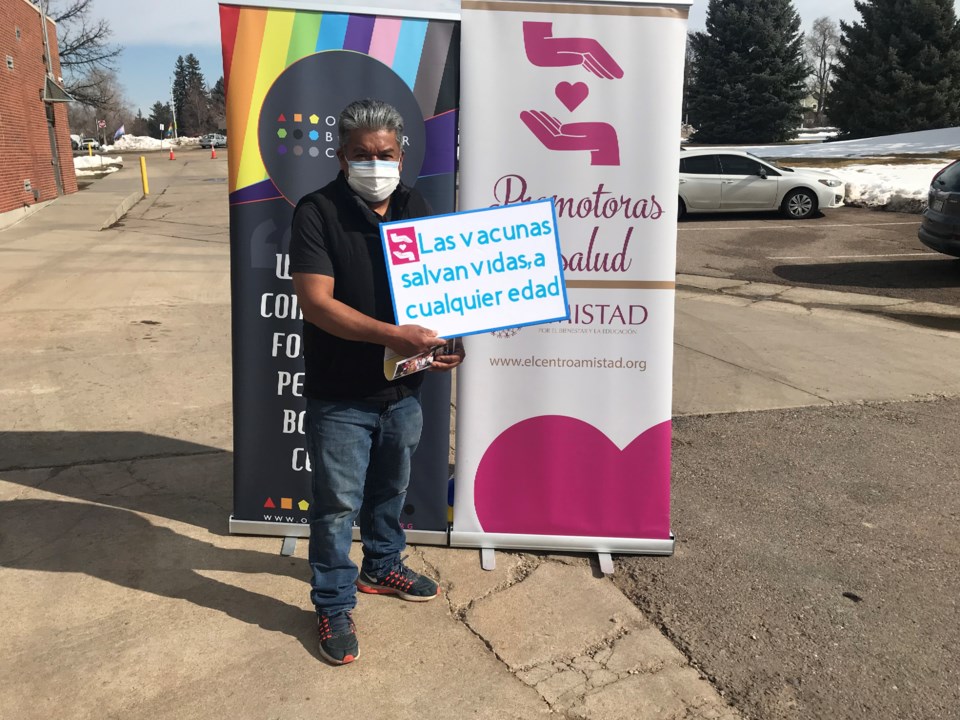Lea en español aquí.
***
Carmen Ramirez, Longmont’s community and neighborhood resources manager, since the flood of 2013 has been on the frontlines helping underserved communities receive important information as events unfold. The COVID-19 pandemic is no different, she said during this week’s Boulder County Public Health biweekly community update.
Through cultural brokers — members of the community who are trusted to share relevant information — BCPH has been successful in setting up two community clinics and has dates set for more.
“It has been an important partnership (with BCPH). I can’t imagine what we would be dealing with if we didn’t have in place this army of cultural brokers and ambassadors to help us with getting out the information and connecting people with resources,” Ramirez said.
The Latino Chamber of Commerce of Boulder County will host a clinic from 9 a.m. to 4 p.m. April 10 at the Front Range Community College Boulder County campus, 2121 Miller Drive. Appointments are required and those seeking the vaccine must meet state eligibility requirements.
Currently those who fall into Phases 1A through 1B.4 or who are 50 or older are eligible for the vaccine.
 Source: Colorado Department of Public Health and Environment
Source: Colorado Department of Public Health and EnvironmentThe Latino Chamber is looking for volunteers to help staff the event.
Additionally, Imagine! Colorado is helping to host two vaccine clinics for adults with intellectual or developmental disabilities. The clinics will be from 9 a.m. to 5 p.m. April 2 and 16, with second-dose shots scheduled for April 30 and May 14, at the Boulder County Fairgrounds, 9595 Nelson Road.
“Clinics have been designed for adults with IDD and will offer accommodations such as slower pace and additional volunteer assistance to navigate the vaccination process. We are accepting individuals with IDD who live in any county — this is not specific to Boulder county residents,” Imagine! stated in a news release.
The Moderna vaccine will be given to the first 1,000 individuals with IDD who register. While parents, providers and guardians fall into Phase 1B.3 in the state’s vaccine rollout, clinic organizers ask that individuals who receive services be vaccinated first. Clients also are encouraged to consult a doctor before getting vaccinated and to fill out the pre-vaccination forms before arriving, the news release states.
Cultural brokers not only help organize clinics, they also connect with individuals to connect them with the resources they need, oftentimes helping them register for vaccine appointments and even driving them to the clinics, Ramirez said.
Ramiez told of when she connected with a Latino family of six, three of whom had COVID, and the family had lost all its income. She was able to find them resources for food, rent and medical assistance.
“I think that helps to really highlight how having someone to speak your language, understand your culture, whether that is the mountain community or the Latino community, can be so key in bringing resources to people,” Ramirez said.
Chris Campbell, BCPH emergency manager, said, “This truly is emblematic of our approach to vaccine equity … These are truly working from lessons learned from the Resiliency for All ... from the 2013 floods, really working with community members closely to understand how we can work with them.”
This week the county received 10,500 vaccines, which is less than past weeks, and a significant amount of those were second doses, Campbell said. He said the county is expecting similar numbers for the next few weeks with an increase in early April.
As new phases of vaccine administration continue to roll out across the state, Campbell advised people to try to get all of their vaccines from the same providers to make it easier for providers to organize vaccine information.



